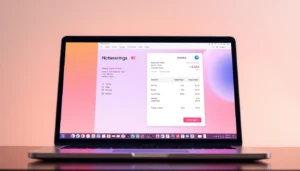Mastering Python Freelance: Strategies to Find High-Paying Digital Projects in 2025

Introduction to Python Freelance Opportunities
In recent years, the landscape of freelancing has transformed dramatically, with programming languages like Python emerging as top choices for independent developers. Its versatility, readability, and extensive libraries make it highly attractive for a broad range of projects—from web development and automation to data analysis and artificial intelligence. As per market insights, Python remains a dominant technology in freelance circles, with platforms such as python freelance opportunities continuously expanding. Whether you’re an experienced coder or a beginner eager to break into the freelance world, understanding the current trends, market demands, and strategic approaches is essential to succeed and maximize your earning potential.
Why Python Remains a Top Choice for Freelancers
Python’s popularity among freelancers stems from several unique advantages. Its straightforward syntax lowers the entry barrier for newcomers, while its powerful ecosystem supports a wide array of applications—be it backend web services with Django or Flask, automation scripts, or complex machine learning models. This flexibility translates into a diverse array of freelance jobs, enabling developers to specialize or diversify their offerings based on market demand.
Furthermore, the global demand for Python skills robustly outpaces supply, especially in regions with vibrant tech hubs such as Paris, Lyon, and the French Riviera. Freelancers can command premium rates—TJM (daily rates) ranging from €600 to €1200—depending on expertise and niche specialization. Freelance projects often span long-term collaborations, remote work, and high-value assignments, making Python a lucrative skill for independent professionals seeking flexibility and stability.
Current Market Trends and Client Demands
Data shows a surge in freelance Python projects aligned with technological innovation. Top fields include data science, machine learning, AI, automation, and web development. Platforms like Upwork report thousands of active Python jobs, with roles tailored to various skill levels and specialties. Clients increasingly seek developers proficient in frameworks like Django, Flask, and FastAPI, as well as those capable of deploying scalable cloud solutions using AWS, Azure, or Google Cloud.
Additionally, the rise of data-driven decision-making has compeled companies to look for freelancers with expertise in data analysis, visualization, and AI. The trend towards remote work also broadens opportunities, enabling freelancers to tap into global markets beyond local geographic limitations. The sustained demand for Python-related skills has positioned freelance Python developers as vital contributors in the digital economy.
For a comprehensive listing of available projects, you can explore specialized platforms like JobForFreelancers, which segments missions by technology and location, making it easier to find tailored opportunities such as Python jobs in Paris, Lyon, or Nice.
Setting Realistic Income Goals for Freelance Python Developers
Understanding earning potential is key to sustainable freelancing. Market averages suggest that a seasoned Python freelancer can earn between €600 to €1200 per day, depending on niche expertise and project complexity. Entry-level developers with strong foundational skills may initially earn around €400 to €600 daily, with potentials for growth as experience and reputation increase.
Developers focusing on high-demand niches like AI, big data, or automation can leverage their specialized skills for premium rates. For instance, experts in Django or Flask with cloud deployment experience tend to secure higher-paying projects. A strategic approach involves setting incremental income milestones, diversifying client portfolios, and continuously honing skills to remain competitive.
It is also important to consider project duration, scope, and client budgets when setting your rates. Transparent communication and demonstrating value through a well-curated portfolio will help in negotiating better terms and long-term collaborations.
Building a Strong Python Freelance Portfolio
Essential Projects to Showcase Your Skills
Your portfolio is your digital storefront. Showcasing impactful projects—such as automation scripts that streamline business processes, data analysis dashboards, or web applications built with Django—can significantly enhance credibility. Including open-source contributions, GitHub repositories, and case studies that reveal your problem-solving approach demonstrates hands-on expertise.
Tip: Develop varied sample projects that highlight core Python functionalities and niche specializations. For example, an e-commerce backend, a machine learning model for predictive analytics, or a cloud-based data pipeline exemplify versatility and technical depth.
Creating an Effective Online Presence
Establishing a professional website or profile on platforms like LinkedIn and specialized freelance sites is essential. Incorporate keywords such as “Python automation,” “Django developer,” or “Data scientist” to improve search visibility. Regularly update your portfolio with new projects, technical blogs, and tutorials to demonstrate ongoing learning and thought leadership.
Visibility can be amplified by joining online communities—Reddit, Stack Overflow, GitHub—and contributing answers, open-source tools, or tutorials. These activities establish your reputation and attract potential clients.
Leveraging Testimonials and Client Feedback
Positive feedback and detailed testimonials boost your credibility. After completing projects, proactively request reviews highlighting your technical skills, communication, and delivery timeliness. Display these prominently on your profiles to influence client decision-making positively.
Where and How to Find Python Freelance Jobs
Top Platforms for Python Freelance Work
Major freelance marketplaces like Upwork, Freelancer, and Fiverr host thousands of Python projects globally. These platforms offer filters for skill level, project duration, and budget, assisting freelancers in pinpointing suitable opportunities. Upwork, in particular, provides detailed project requirements and client profiles, allowing for better matching and proposal tailoring.
Using Niche Job Boards and Community Sites
Specialized job boards such as Toptal, Gun.io, and Python-focused communities like Real Python Jobs connect freelancers directly with high-quality clients. Niche platforms often feature longer-term engagements and higher pay, valuing specialized Python skills.
Active participation in community forums like Reddit’s r/Python or Stack Overflow Careers can also lead to unsolicited job offers and collaborations. Exhibiting your expertise in these forums enhances your visibility among potential clients seeking top-tier Python developers.
Networking and Social Media Strategies
Professional networking remains a powerful tool. Attend webinars, hackathons, or local tech meetups to connect with industry peers and potential clients. Utilize social media campaigns on Twitter, LinkedIn, and niche groups to showcase projects, share insights, and solicit referrals. Building relationships over time significantly increases your chances of consistent project flow.
Optimizing Your Profile for Better Visibility
SEO-Friendly Profiles and Proposals
Use keywords strategically in your profile descriptions, skills, and project summaries. For example, integrate terms like “Python automation,” “Django development,” or “data analysis” naturally within your profile and proposals. Clear, concise language paired with technical specificity draws attention from both clients and platform algorithms.
Keywords to Target in Your Pitches
Tailor each application using keywords relevant to the project. Include client-specific terms and technical skills to demonstrate understanding. For instance, if bidding on a data visualization project, emphasize expertise in Python libraries like Matplotlib, Seaborn, or Plotly.
Highlighting Niche Expertise (Django, Flask, Automation)
Focus on a niche within Python to stand out amidst competition. If you’re proficient in automation, showcase scripts that optimize workflows; for web development, feature Django and Flask projects. Specialization allows you to command higher rates and attract clients seeking specific skill sets.
Best Practices for Managing and Growing Your Freelance Business
Pricing Strategies and TJM Optimization
Set your rates based on expertise and project complexity, but also consider market standards. Use value-based pricing where possible, emphasizing ROI for clients. Regularly review and adjust your TJM to align with your skill growth and demand, ensuring competitive yet profitable rates.
Project Management Tips for Freelancers
Effective project management involves clear scope definitions, regular communication, and timely deliverables. Use tools like Trello, Jira, or Asana to organize tasks. Keeping projects transparent mitigates misunderstandings and builds trust, leading to repeat business.
Scaling Your Freelance Activities with Passive Income Streams
Long-term success involves diversifying income sources. Consider creating Python automation templates, selling e-books or courses, or developing SaaS tools. Passive income streams can supplement active projects, providing stability during market fluctuations.
Building a reputation in the Python freelance community can also open doors to high-end consultancy, speaking engagements, or partnership opportunities, further accelerating growth.





